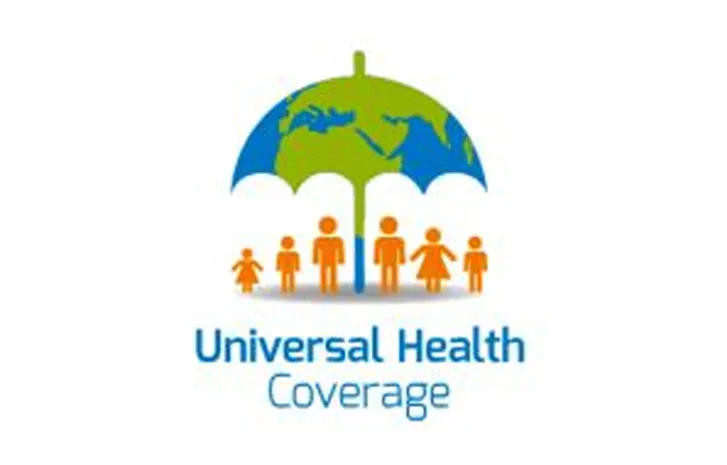
As Nigeria advances toward achieving Universal Health Coverage, a persistent challenge remains – reaching the country’s “zero-dose” children, those who have not received even a single routine vaccine.
In a coordinated national response, the World Health Organisation (WHO), the National Primary Health Care Development Agency (NPHCDA) and the United Nations Children’s Fund (UNICEF) marked African Vaccination Week on Tuesday in Abuja by announcing the scale-up of innovative strategies to ensure no child is left behind in the fight against vaccine-preventable diseases.
Africa Vaccination Week, established 13 years ago and endorsed by African Union member states, presents an opportunity for countries across the region to campaign for stronger and more effective immunisation systems. The 2025 World Immunisation Week theme is “Immunisation for All is Humanly Possible.”
Globally, there are over 100 million zero-dose children and Nigeria accounts for one of the highest proportions. These children, often found in remote, underserved, or conflict-affected areas, face extreme risk from diseases like measles, tetanus and diphtheria – illnesses that are entirely preventable with timely immunisation.
At a high-level immunisation dialogue in Abuja, Dr. Eshetu Wassie of WHO’s expanded programme on immunisation said that reaching zero-dose children has now become a public health emergency. He emphasised the need for precise, targeted action, rather than broad, general campaigns.
“It’s no longer enough to just conduct campaigns. We must locate who [has been] missed, understand why and act, child by child. Surveillance is our first line of defence,” he said.
Wassie noted that WHO is supporting Nigeria in strengthening its surveillance systems, refining data-driven immunisation strategies and implementing the zero-dose operational plan and The Big Catch-Up campaign. He stressed that even with 90 per cent vaccine coverage, a measles outbreak remains possible without achieving the 95 per cent threshold needed for population immunity.
“The only way to stop outbreaks is to ensure no one is left out,” he said.
At the center of Nigeria’s immunisation strategy is the revitalisation of primary health care centers and a shift toward greater state and local government ownership of routine health services. Executive director of NPHCDA, Dr. Muyi Aino said the federal government is now focusing on empowering states to sustain interventions rather than relying on prolonged federal support.
“We’re not just revitalising buildings; we’re building systems. The Federal Government is moving from prolonged interventions to empowering states to sustain them. That’s how we avoid relapse,” he said.
Aino explained that high-volume primary health care facilities – those serving the most patients – are being prioritised through the Basic Health Care Provision Fund. This prioritisation is guided by data and implemented in collaboration with state governments.
“This is not guesswork. We sit with the states and define what qualifies as high or low volume. Funds follow the patients. That’s how we ensure equity and impact,” he said.
He added that states are now being incentivised to hire and manage their health workforce directly, replacing federal hiring for locally-based needs.
“The goal is sustainability. States must begin to take full ownership of their healthcare workforce,” he said.
Aino also highlighted NPHCDA’s efforts to improve vaccine accountability.
“We’re ensuring that every vaccine dose bought is traceable, from national stores to the arms of children. That’s the only way to justify continued investment and inspire public confidence,” he said.
UNICEF’s Nigeria Representative, Ms. Christian Munduate noted that the zero-dose crisis has shifted the agency’s approach from conventional service delivery to humanitarian-style outreach. She emphasised that many of the unreached children are not just missed – they are excluded.
“These children aren’t just missed; they’re excluded. We’ve shifted to humanitarian-style programming because traditional systems were not reaching them,” she said.
UNICEF is now deploying mobile outreach teams, community mobilisers, and school-based interventions. It is also addressing hidden barriers that prevent families from accessing vaccines, such as misinformation and transport costs.
“It’s not enough that vaccines are free. If it costs a mother N500 to get to the clinic, her child may never be vaccinated. We’re tackling those barriers one by one,” Munduate said.
She emphasised that ensuring equitable access to vaccines is not a charitable gesture but a matter of justice.
“Health equity is not charity. It is justice,” she said.
All three agencies agreed that success in reaching zero-dose children will depend heavily on political will, sustained financing, transparency in data, and true community ownership. As Nigeria moves toward the “last mile,” they reaffirmed their collective commitment not only to find the unreached but to stay with them, ensuring every child receives the protection they deserve.

